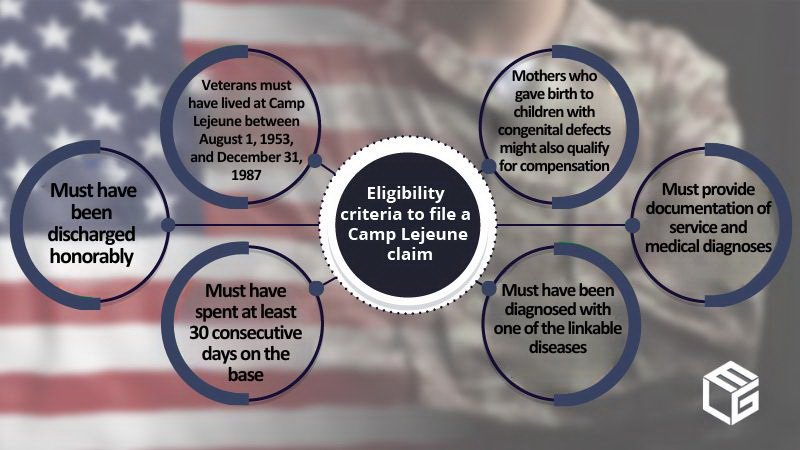Attention: We are no longer taking Camp Lejeune cases!
TCE linked to the development of polycythemia vera
Polycythemia vera is not usually fatal on its own, but complications arising from blood clotting or progression to more aggressive types of blood cancers can be life-threatening. A study conducted in 2006 by the Agency for Toxic Substances and Disease Registry found that exposure to TCE may be associated with the development of polycythemia vera, although further research is required in this regard.
Trichloroethylene (TCE) is a volatile organic substance that the US military used extensively to degrease equipment, which resulted in soil and groundwater contamination.
Trichloroethylene (TCE) is a chemical that breaks down slowly and persists in the environment for a long time. It has the ability to penetrate soil and accumulate in groundwater, leading to contamination. A striking example of this happened at Camp Lejeune military base, where the concentration of trichloroethylene at Hadnot Point was found to be shockingly high - 280 times higher than the safe limit.
Benzene associated with polycythemia vera
The same ATSDR study found evidence that benzene may also increase the risk of polycythemia vera. Benzene is a colorless, flammable liquid that quickly evaporates when exposed to air. It occurs naturally, but people usually come into contact with it through workplace exposure. In the past, benzene was widely used on US military bases as an industrial solvent and gasoline additive, but its usage has decreased in recent years.
Individuals residing and employed at Camp Lejeune were exposed to benzene through polluted groundwater. The US Environmental Protection Agency and the US National Toxicology Program have classified benzene as a human carcinogen.
Studies associate PCE exposure with polycythemia vera
A comprehensive study shows evidence that high exposure to perchloroethylene may increase the risk of polycythemia vera. This chlorinated solvent is classified as a probable human carcinogen and has been used in various industries and on military bases. PCE usage has been reduced in recent years due to its toxicity and negative environmental impact.
Perchloroethylene, also known as tetrachloroethylene, was detected in the soil and groundwater of Camp Lejeune military base. According to the ATSDR study results, the concentration of perchloroethylene exceeded the current EPA maximum contaminant level at the Tarawa Terrace water treatment plant from November 1957 to February 1987. This means that thousands of civilian employees, military members, and families who lived and worked on the base were exposed to this hazardous chemical. As time passed, perchloroethylene broke down in the groundwater into other hazardous chemicals such as trichloroethylene (TCE) and vinyl chloride.

